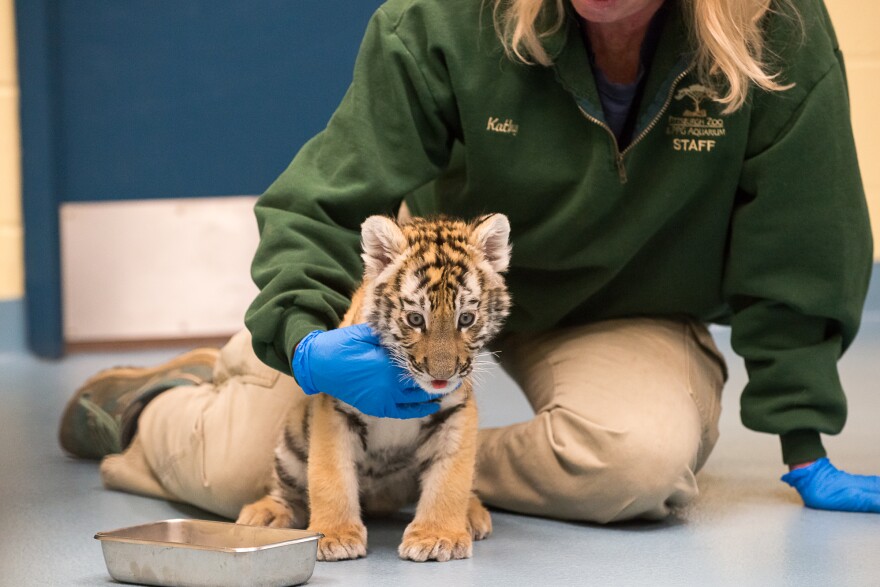Two rare tiger cubs whose mother didn't bond with them are being hand-raised at the Pittsburgh Zoo and PPG Aquarium.
Zoo keepers on Tuesday showed off the twin male and female endangered Amur cubs, which were born Sept. 25. The keepers had noticed the cubs' mother, 10-year-old Tierney, wasn't caring for them 24 hours after their birth and decided to remove them.
Dr. Ginger Sturgeon, director of animal health at the zoo, said the twins don’t have names yet, but definitely have personalities.
“They are assertive, they like to play, they like their bottles, they like their meat, they like their toys,” Sturgeon said. “They’re doing everything that tiger cubs should be doing at this age.”
Their diet is a mix of a milk replacement and meat blend, which they receive every couple hours, according to Sturgeon. She said once the felines reach 12 weeks, they’ll transition to a meat-only diet.
In a few weeks the cubs will transfer to one of the zoo's cat buildings, where they will be able to see, hear and smell other cats. The goal is to reunite them with their mother or get them a substitute mother.

“Even though they weren’t able to be with mom, they’re hugely valuable,” Sturgeon said. “Anytime we can have a successful breeding program,that means they will be another Amur tiger to be able to serve as an ambassador for their species.”
Native to Russia and northern China, hunting and habitat loss cause the Amur tiger population to drop to near-extinction in the 1940s, according to the World Wildlife Federation. But conservation efforts have been successful, bringing the population stable to about 540 tigers worldwide.
The Pittsburgh Zoo is known for its success in reintroducing youngsters to their families. In 2011, a baby tiger was successfully reintroduced to its family after recovering from a life-threatening illness.
The Associated Press contributed to this report.




